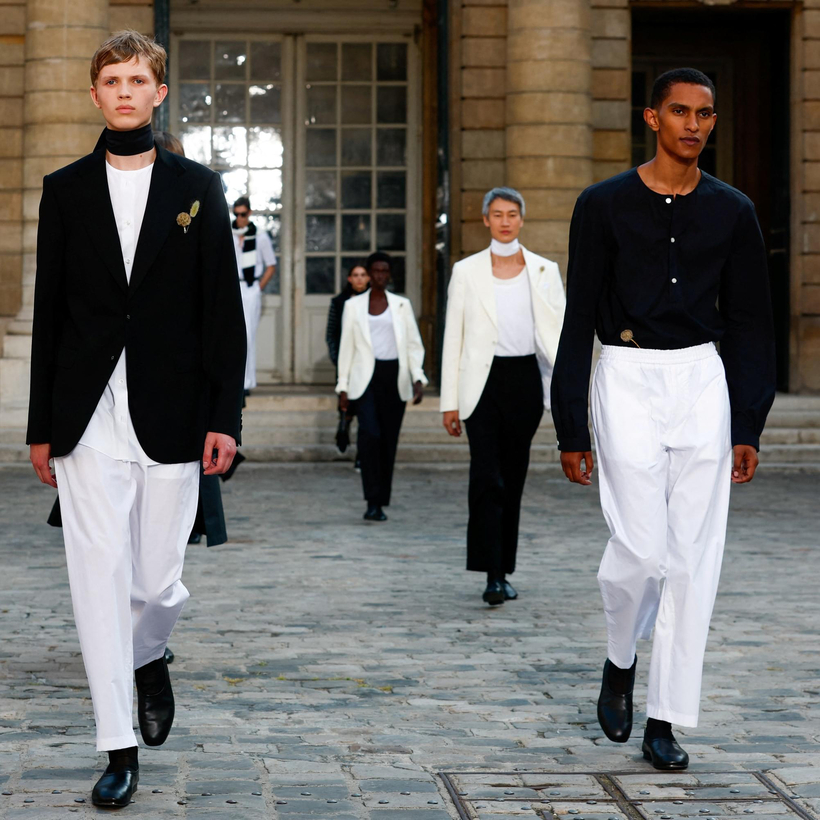Last summer I needed a men’s suit with a few hours’ notice in the middle of Paris. And it needed to fit my female frame. I called Husbands, the modern tailoring brand whose clothing is reminiscent of the 1970s and 1980s, and dashed through the Palais-Royal to meet founder Nicolas Gabard. The Brittany native with a wiry frame and grand charm quickly whisked me into a gray, pin-striped wool suit that fit perfectly. Bisous, and I was off into the rain, with only velvet slippers for shoes.
I took cover in Officine Générale, the discreet French brand, searching for a dry-shoe solution. Pierre Mahéo—Officine’s mastermind—also hails from Brittany and understands practical style. The brand’s white Asahi Japanese sneakers, with a thick sole, were just the thing. The first time I’ve paired sneakers with a suit—but who cared! Feet dry, I made it to a meeting with L’Étiquette magazine.


